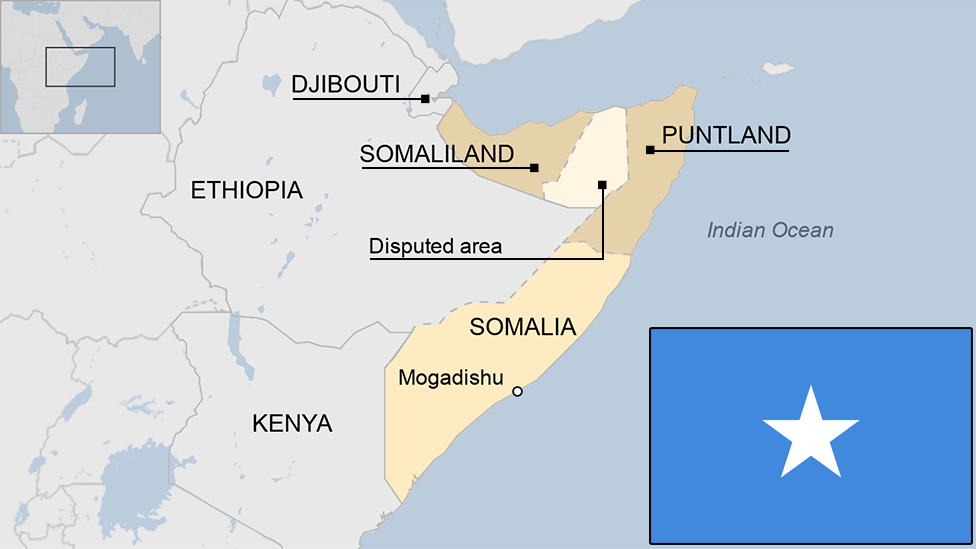Somalia ship hijack: 'Pirates' demand ransom
- Published
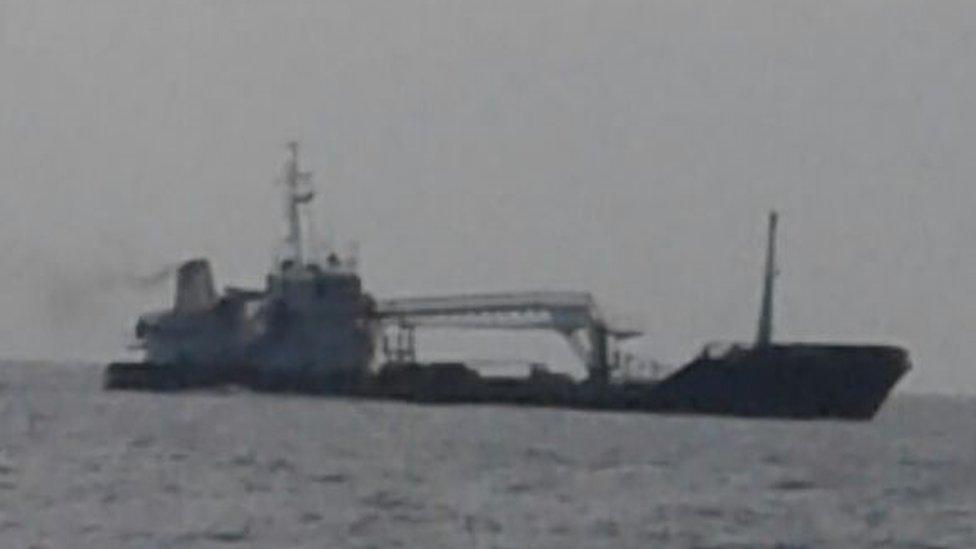
The Sri Lankan-flagged tanker was sailing to Mogadishu
Hijackers holding an oil tanker off the coast of Somalia are demanding a ransom, the European Union anti-piracy naval force says.
The EU force made contact with the ship's master who said his vessel and crew were being held captive anchored off the coast of north-east Somalia.
The gunmen have however not given any details about the size of the ransom.
The EU is helping to tackle piracy in the region but this is the first hijack off Somalia's coast since 2012.
The ship was en route from Djibouti to the Somali capital, Mogadishu, when it sent a distress signal, saying it was being approached by high-speed boats.
The ships tracking system has reportedly been switched off.
The Sri Lankan Foreign Ministry has confirmed, external that eight of its nationals were on board.
The gunmen have told a local official they are fishermen whose equipment was destroyed by illegal fishing vessels.
Ali Shire Mohamud Osman, the district commissioner in the town of Alula, near where the ship has been taken, told the BBC he was trying to find out if the gunmen really were fishermen or were organised pirates.
"The men who are holding it claim that they are fishermen who suffered from the illegal fishing in the area. However, if we confirm that they are pirates, I will ask them to leave the area immediately. Otherwise, we will see how we can save the vessel," he said.
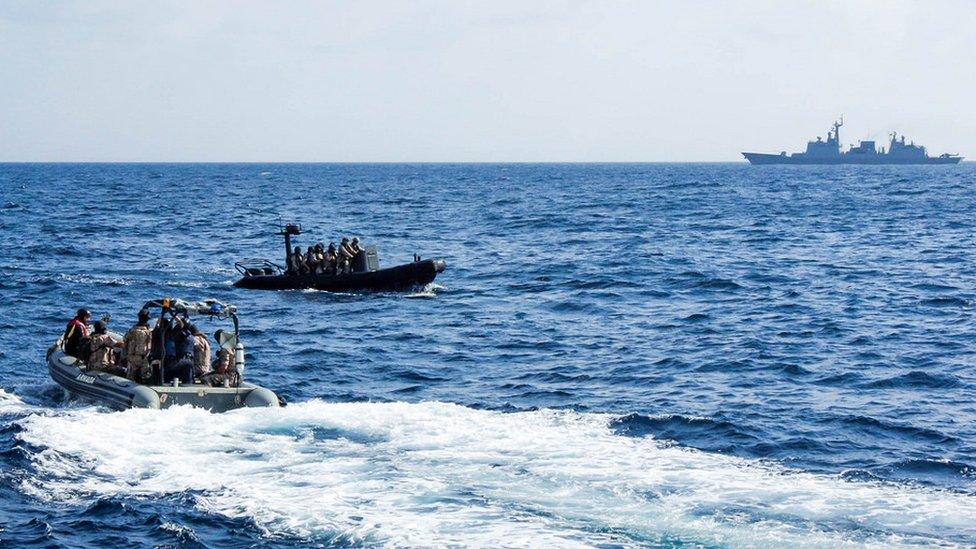
The European Union Naval Force has been running operations off Somalia since 2008 to combat piracy
The vessel was carrying oil and was owned by the United Arab Emirates (UAE), despite conflicting reports over the flag it was sailing under, he added.
The European Union Naval Force, which runs anti-piracy operations in the area, said it was too early to confirm pirate involvement.
It has sent a plane to the area to investigate.
Eight people are believed to have been on board the ship, which can carry almost 12,000 tonnes of cargo.
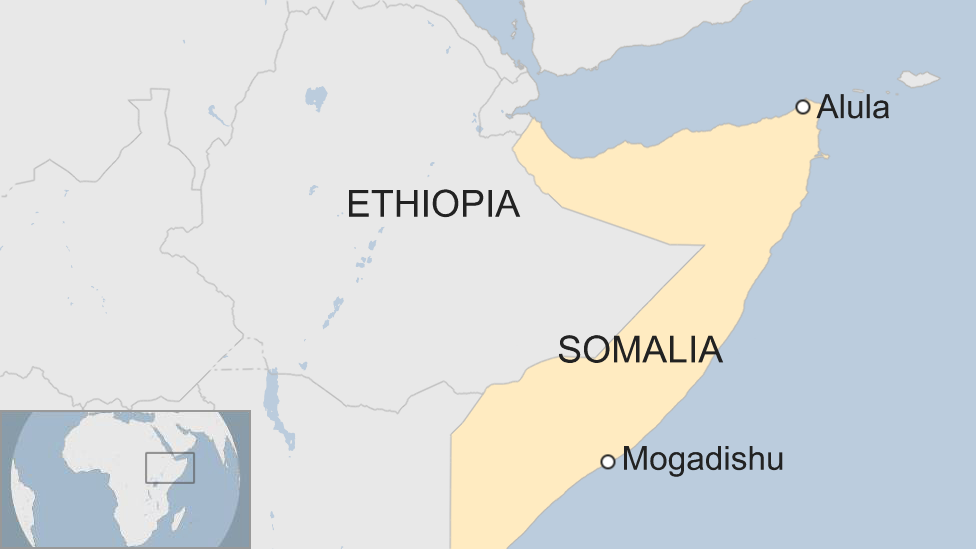
Piracy off the coast of Somalia, usually for ransom, has reduced significantly in recent years, in part because of extensive international military patrols as well as support for local fishing communities.
At the height of the crisis in 2011 there were 237 attacks and the annual cost of piracy was estimated to be up to $8bn (£7bn).
However, some smaller fishing vessels have recently been seized in the area.
Colin Freeman went to report on the pirates and ended up as their hostage
In 2015, Somali officials warned that piracy could return unless the international community helped create jobs and security ashore, as well as combating illegal fishing at sea.
Some Somali fishermen turned to piracy after their livelihoods were destroyed by illegal fishing from foreign trawlers, who benefited from the lack of a functioning coastguard in the country following years of conflict.
- Published31 August 2015
- Published29 November 2012
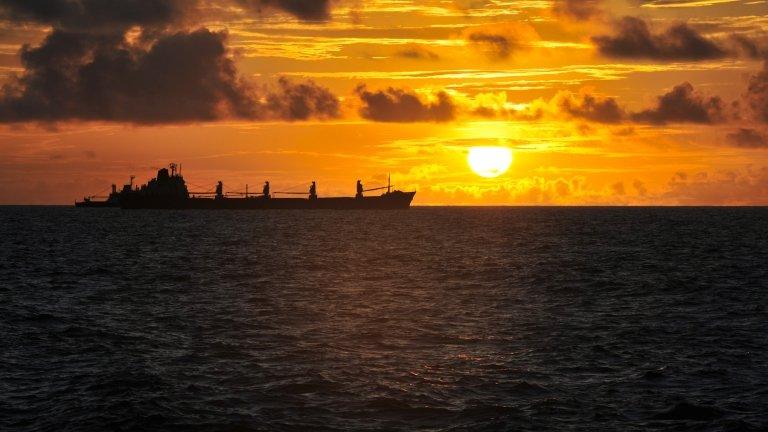
- Published20 October 2013
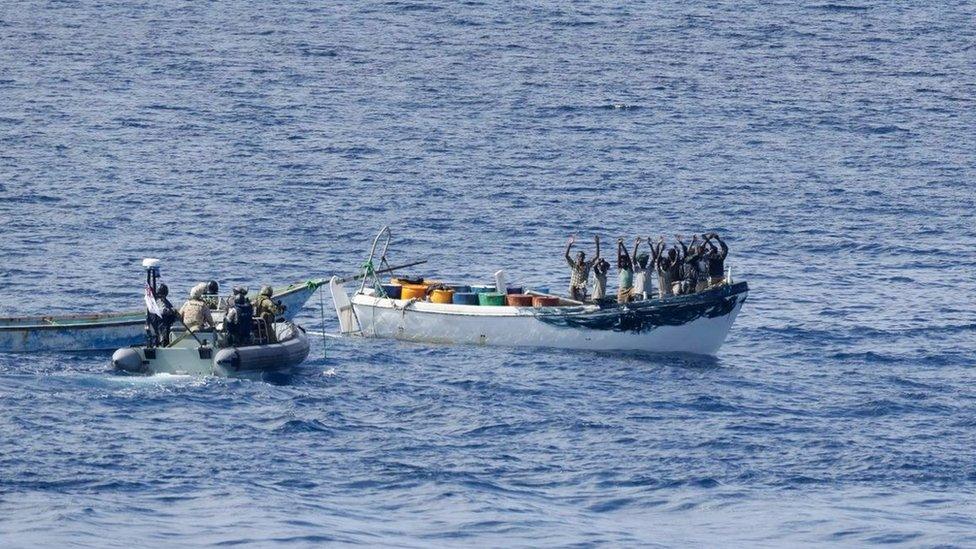
- Published2 January 2024
